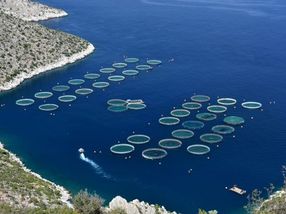EU Commission: Insect killer Chlorpyrifos to be banned
Due to health concerns, a plant protection product that has been used for years is to be banned in Europe. According to the EU Commission, it intends to propose not to extend the approval for the substances Chlorpyrifos and Chlorpyrifos-Methyl which expires in January. On Monday evening, the Brussels authorities confirmed a report by "taz" from Berlin.

Bild von Erich Westendarp auf Pixabay
The product, which has been approved in the EU since 2006 and is intended to combat pests in agriculture, is suspected of damaging the genetic material and nerves of embryos. According to "taz", chlorpyrifos may no longer be injected in Germany today. However, the substance is found in imported oranges, mandarins and grapefruits.
A spokeswoman for the EU Commission informed the German Press Agency on request that concerns about effects on human health had been discussed at an expert meeting of the European Food Authority Efsa in April. Following a corresponding work order, Efsa confirmed its concerns on 2 August. The Commission would now prepare the proposal to the EU states not to renew the approval.
In the "taz", however, consumer protectors and politicians demanded an immediate ban. "The active ingredient must be banned immediately," said Matthias Wolfschmidt, Director of International Campaigns for the Foodwatch organisation. Food expert Armin Valet of the Hamburg consumer advice centre said the insecticide had been the subject of criticism for many years. SPD health expert Karl Lauterbach is quoted as saying: "The use of chlorpyrifos has long been unacceptable". (dpa)
Note: This article has been translated using a computer system without human intervention. LUMITOS offers these automatic translations to present a wider range of current news. Since this article has been translated with automatic translation, it is possible that it contains errors in vocabulary, syntax or grammar. The original article in German can be found here.
Most read news
Other news from the department politics & laws

Get the food & beverage industry in your inbox
By submitting this form you agree that LUMITOS AG will send you the newsletter(s) selected above by email. Your data will not be passed on to third parties. Your data will be stored and processed in accordance with our data protection regulations. LUMITOS may contact you by email for the purpose of advertising or market and opinion surveys. You can revoke your consent at any time without giving reasons to LUMITOS AG, Ernst-Augustin-Str. 2, 12489 Berlin, Germany or by e-mail at revoke@lumitos.com with effect for the future. In addition, each email contains a link to unsubscribe from the corresponding newsletter.




























































